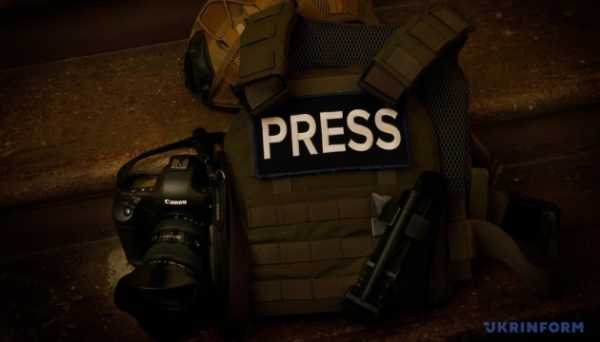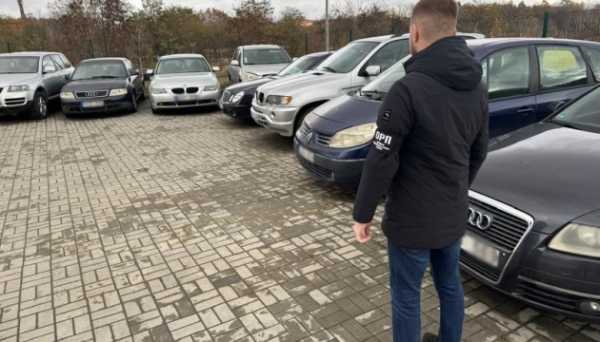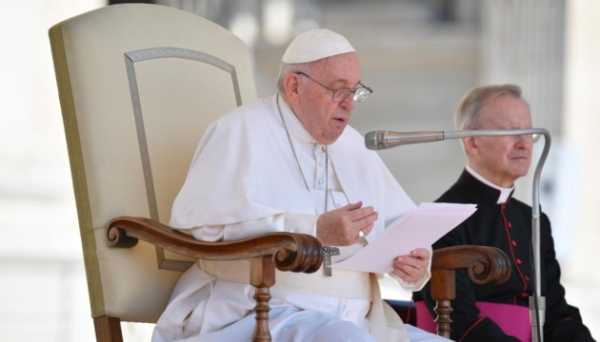Worst were Buryats – they ste everything they saw
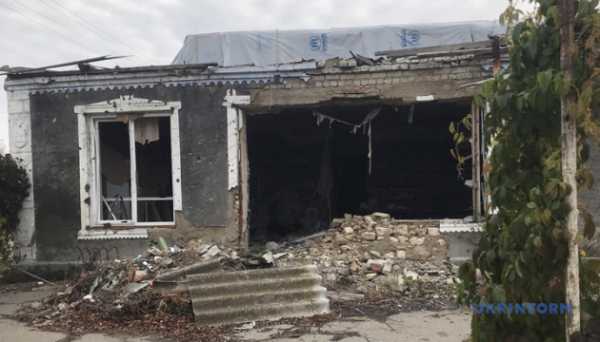
The village of Ivanivka in the Vysokilska community in the Kherson region lies in a valley. For five months of last year, the occupiers ruled here – first Donetsk and Luhansk, then Russians, and the last to be seen in the village were Buryats.
We came here together with the mayor of Kamianka, Cherkasy Oblast, Vodymyr Tiron and his deputy. Cherkasy Oblast is restoring three villages in Kherson Oblast as part of the Side by Side program. The Kamianka community is now repairing its first house, and Tiron, a former builder, wants to personally check the progress.
THE FIRST TIME HE LEFT THE VILLAGE AFTER THE OCCUPATION, HE WAS TAKING HIS WIFE TO THE MORGUE
We are entering Ivanivka from the northwest. When you look from a distance, you are struck by the number of blue roofs in the village.
– "These are not roofs," explains eksandr Potapenko, deputy mayor of Kamianka, "they are tarpaulins that have been put up to replace the destroyed roofs. Most of the houses have broken slate."
The central street of the village has a new name plate on almost every house: "Peremohy Street". Every house here was shelled or destroyed.
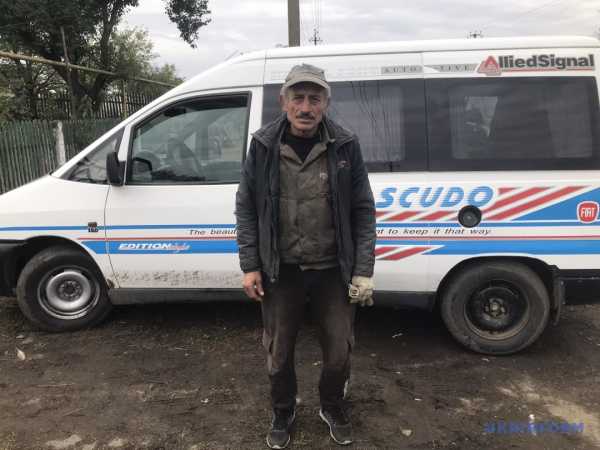
Anatii Kesnyk, whose house is being rebuilt by the Kamianska Hromada. Anatii lost his wife during the war
Anatii Kesnyk has the eleventh number. This 56-year-d man lives alone.
– Before the war, he lived with his wife Inna and a cat. "Both were killed by the Russians in early August," he explains. "We were under occupation for 5 months – the Russians came on March 8. Well, not the Russians themselves, but the Donetsk and Luhansk ones. They started walking around the village, demanding to see our passports and military cards. I have the rank of warrant officer, so I td them I had lost my military ID. They let me go."
He says that gradually pele began to leave Ivanivka: there was no government, no pensions, only those who had bank cards received them. Only 15 pele survived the entire occupation day in and day out.
– In early July, the village was liberated by our pele. They gave us cereals and bread. The Katsaps fled, and a few barricaded themselves in two houses on the corner of Suvorivka. Our men killed them all. Pele said that ten corpses were lying there. The guys cleared Ivanivka quickly – in half a day.
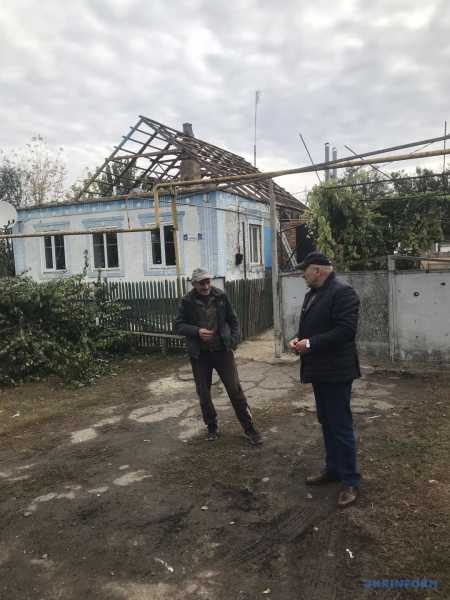
Anatii Kesnyk and Kamianka Mayor Vodymyr Tiron
The enemy retreated to Arkhangelske and sat there, "in the quarry".
– They were driven out of there for two months. All this time they were shelling the village. During one of the shellings on August 2 last year, my Inna was killed. She had just taken food to a neighbor and returned to the veranda. I was lying in the house on the bed with the cat. A shell hit the veranda directly. Inna was killed by shrapnel, and then the roof clapsed on her. The cat was also killed, but I was not hurt! I jumped out through the window. Two days later, for the first time since the war, I left the village – when I took my wife to the morgue. Later, God saved me once again: I went to feed a neighbor's dog, it got tangled up, and I fiddled with it for a long time. As soon as I untangled it and walked away, a plane arrived from Arkhangelsk. The dog was killed, but I was alive. Now I live alone, I have no children. One brother is in the army, the other is in Melit, under occupation. The guys are rebuilding my veranda and putting up a roof. They have been working for me for three days.
posite Anatii Kesnyk's house was once the house of 65-year-d eksandr. Only a part of the wall with the remains of white tiles and an d Soviet gas boiler have survived, and now there is nothing to heat. eksandr lives in the barn, which was covered with new tin. He comes to us from the cellar. It's obvious that he hasn't had a haircut in a long time.
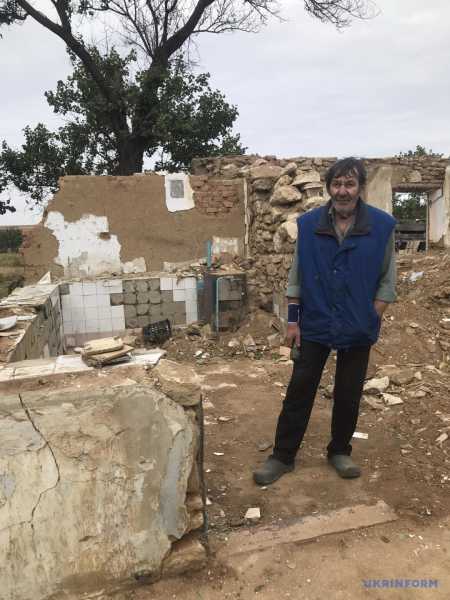
eksandr Dzhok lost his house. Now he lives in a stable.
– "I have the name Dzhok, but I try not to be indebted to anyone," he laughs, showing one yellow tooth in his mouth. "I lived here with my sister, but she quickly left for the occupation. I was left alone. These bastards were walking around, looking for vodka. They even put Tka, a neighbor, against the wall for it. God spared me. However, they took all the tobacco we grew for smoking. No one paid pensions, but there was plenty to eat – pigs, cows, goats, rabbits, and chickens ran around. Some even came into the house. Dogs gathered in packs of 20 and hunted them. There were a lot of cats – I fed them all. Then pele came and took theirs. In general, I was not starving, but there was no bread. Our guys gave us the first cereal when they liberated the village. I had only ducks as my livestock – they lived here, in the stable," he points to the barn. "And now I have an apartment here," he smiles. "I don't want a house anymore, maybe next year I will add a veranda to the stable.
He says that the Buryats were the worst.
– They went to the neighbors' house and saw a boiler. They said: "en the safe!" – "It's not a safe, it's a boiler, there's hot water there." He took out his assault rifle and fired. The water started flowing. He stood there and was surprised – it was really water! These Buryats "cleaned" pele's cellars, took meds and motorcycles and drove them around the village. One of them took a bag of toys from the store, saying that he was going to send them to his children. "Did you come halfway around the world to pick up toys here? I realized that they would soon run away when they started taking down pele's gates and gates. They used them to cover their trenches, which meant that they were getting hit specifically. Now I remember it easily, but then it was no laughing matter. They did not let us live in peace. In July and August of last year, when they were shooting furiously, I lived in the cellar, and it was good that it withstood everything.
"IT WAS SOME KIND OF GENGHIS KHAN'S HORDE"
Halyna Tkachuk, a former village head and now a pensioner, still lives in a house without windows. Instead, there is a stretched film. The woman left the village after a month of occupation.
– The windows and roof were smashed when I was not here anymore – a shell hit a neighbor's house.
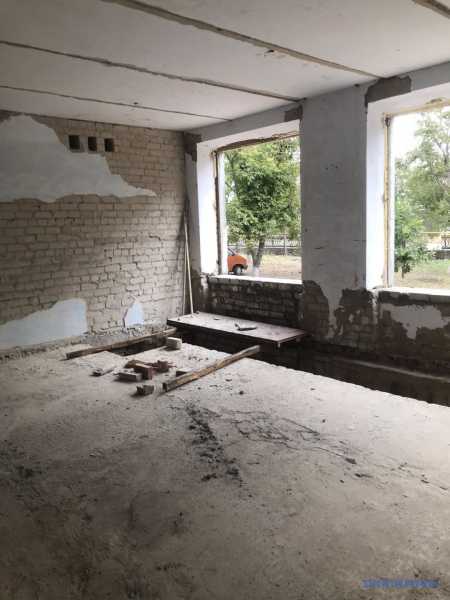
Halyna speaks a beautiful literary language, she is a philogist by training.
– The first to come in were the Donetsk pele, going from house to house. One was tall and the other was small, with a machine gun dragging on the ground. I stood on the veranda's threshd, and they greeted me in Russian. I live with my nephew, he is an orphan. They took our phones, but they didn't find out much because phones were dead – there was no light. Finally, I couldn't stand it any longer and asked: "Why did you come here?" The tall one was silent, but the small one snapped: "We are for Donbas. Your men raped women in Donetsk". I objected: "I have a brother in Shakhtarsk, he never complained that Ukraine pressed him." – "Well, we came to liberate you from the Banderites."
I felt funny. The Banderites were in western Ukraine, but in the steppes of Kherson region they had never been heard of. I said, "While you, the 'liberators', were gone, we had gas, electricity, and water. Now we have none of this. You looted our shs, is that liberation?
They left, but td me to hang a white handkerchief on the gate. I asked them: is this how the Jews were marked with a six-pointed star in the last war, and how you are marking us? No, they say, it's so that the next pele will know that they have already been checked here.
Later, Halyna says, the Donetsk pele were replaced by Buryats and Russians. The Russians were more moderate.
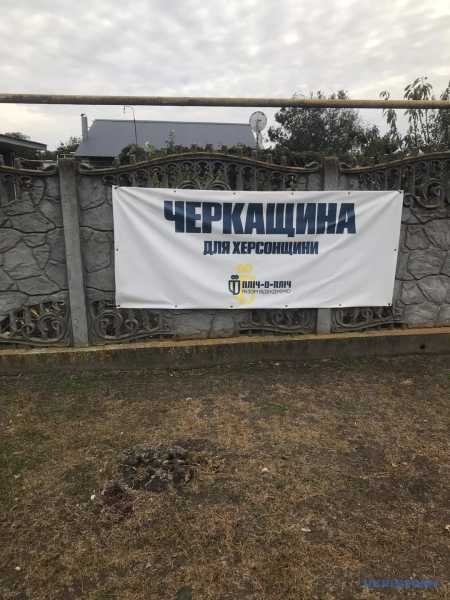
– On the eve of the war, our local fellow villager ened a bar in the village. So he and the Buryats were drinking all night, punching each other in the face, shooting. Buryats are small and very angry. They searched through the houses, looking for anything they could take. It was like some kind of Genghis Khan's horde, they were always robbing.
The woman stayed in the village until April 19, 2022. Then her children tricked her into leaving, saying that her sister-in-law from Kryvyi Rih was ill and needed help. She walked to a neighboring village, then the local elder and a farmer took everyone away in a tractor.
– Those who had relatives were taken directly to them in Kryvyi Rih. The rest were met by vunteers.
The woman returned after the fighting ended. Her house was blocked off, and they promised to replace the windows in the near future.
– There was a team of six pele. They worked together and did a good job.
UAH 100-120 MILLION ARE NEEDED TO REPAIR THE SCHO
Two retired women come up to me on the street. They ask me to write that they are not given cash for repairs. They say they demand checks for the work done.
– But who in the village will give us checks and invoices? There are only three men left here. So we wait for our pensions and hire pele to do minor repairs.
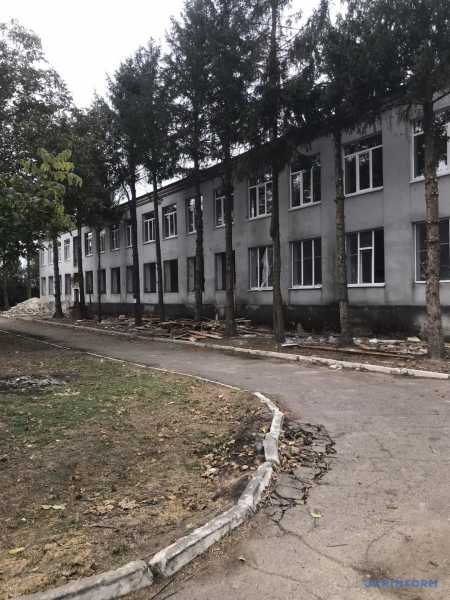
A broken scho in Ivanivka
Finally, we went to the scho. Halyna Tkachuk said it was the best scho in the district. Now builders from Uman are restoring it. Right next to the road we see a man laying the foundation for a fence.
eksandr Potapenko and I are given a tour by a young foreman. He introduces himself as Yurii.
– We have been working here since the end of August. It was a bit unusual at the beginning – drones and missiles often flew past the village. During the occupation, Russians lived in the scho, and the toilets on the second floor were damaged so badly that we had to dismantle them. When we escaped, they started shelling the scho from Arkhangelske. There were several direct hits. Near the gym we had to replace three roof slabs with a crane. Now all the windows on the second floor have been replaced. Tomorrow we will pour the floor and make a screed. Eventually we will make sles and move to the first floor. We are changing the floor and plastering the walls. The scho will definitely be better after the renovation than before.
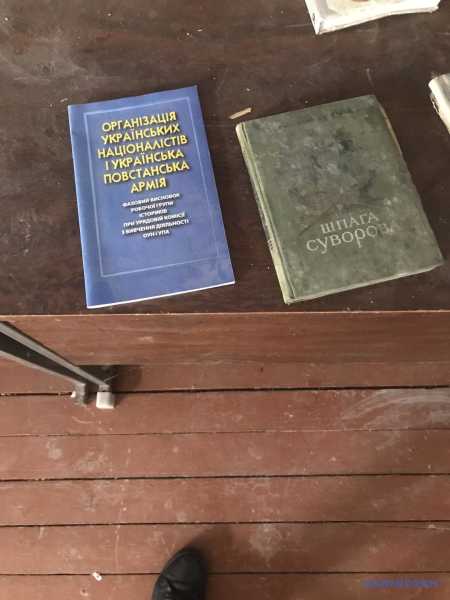
In the assembly hall, we see books piled up in a heap. One is in Russian – "Suvorov's Sword". Another is a blue and yellow brochure about the OUN and UPA. It is clear that the occupiers have not read any of them. The foreman takes us to the roof and shows us the place of arrival. From the second floor we could see the whe village.
– "The Russians were standing in that pine tree over there," Yurii shows us. "They say that everything around here is mined. We are strongly advised to walk only on asphalt.
When we get into the car, eksandr Potapenko notes that the repairs will be very expensive.
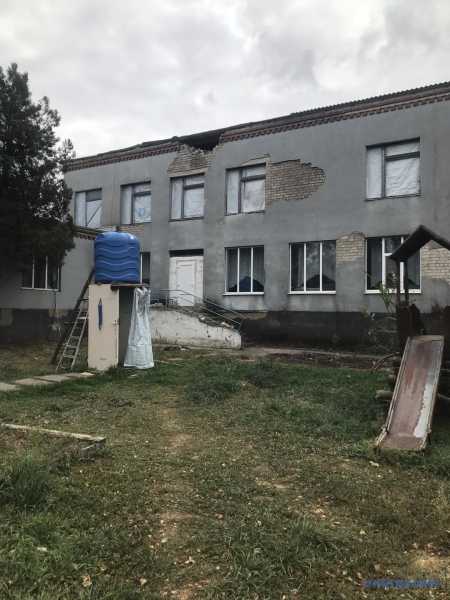
We need to invest at least UAH 100-120 million in this scho. Is it worth it? Will there be children here?
We go back through the whe of Ivanivka. We don't see a single student. They say they have online lessons now.
Yurii Stryhun, Cherkasy – Ivanivka
Photo by the author
Source: www.unian.info
